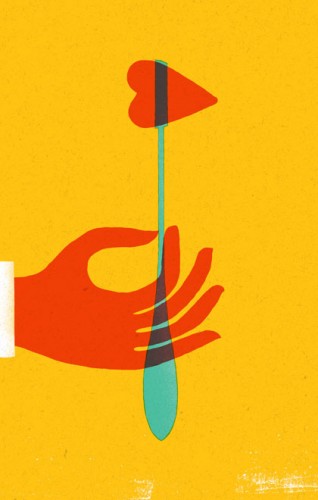 Kenneth M. Ludmerer is Professor of Medicine, Professor of History, and the Mabel Dorn Reeder Distinguished Professor of the History of Medicine at Washington University in St. Louis. He is also a distinguished, Pulitzer-nominated author who has written extensively about medical education. In his just-released latest book, Let Me Heal: The Opportunity to Preserve Excellence in American Medicine (Oxford University Press: 2015), he writes about some of the things we are doing here at the CIM, including the Aliki Initiative. Here’s an excerpt:
Kenneth M. Ludmerer is Professor of Medicine, Professor of History, and the Mabel Dorn Reeder Distinguished Professor of the History of Medicine at Washington University in St. Louis. He is also a distinguished, Pulitzer-nominated author who has written extensively about medical education. In his just-released latest book, Let Me Heal: The Opportunity to Preserve Excellence in American Medicine (Oxford University Press: 2015), he writes about some of the things we are doing here at the CIM, including the Aliki Initiative. Here’s an excerpt:
Institutional leaders David B. Hellmann and Roy C. Ziegelstein listened to the concerns of Bayview house officers, who repeatedly pointed out that intense time pressures and high patient workloads did not adequately allow them to learn or heal. Accordingly, in 2007 Hellmann and Ziegelstein created a new program for internal medical house officers at Bayview, the Aliki Initiative, that aimed to develop “caring doctors who have a genuine and deep appreciation of the importance of knowing each patient’s unique personal circumstances and who make patient care recommendations that apply the best evidence to the individual patient.” The explicit goal of the program’s founders was to enable physicians-in-training not only to master the mechanics of delivering medical care but to learn the art of healing.
To accomplish this, Hellmann and Ziegelstein reduced the number of patients assigned to each resident on the Aliki team by one-half. Traditional internal medicine teams at Bayview admitted ten patients every fourth night on “long call” and four patients during an intervening “short call.” The Aliki team admitted five patients on long call and two on short call. In addition, the Aliki house officers visited their patients after discharge at home or in institutional facilities, thereby receiving the opportunity to spend more time with patients both during and after hospitalization. With the reduced census, the Aliki team members had more time to read, reflect, participate in teaching sessions, make home visits, and engage in mentored experiences designed to improve their skills at history taking, counseling, and developing individualized treatment plans. The thrust of the Aliki experience was to help house officers develop an understanding of each patient as a unique person within his or her own home and community.
“It’s given me time to be the kind of doctor I’ve always wanted to be and do the things I should be doing for all my patients.”
The Aliki rotation, which was required of all Bayview internal medicine house officers, quickly became the program’s most popular feature. Initially house officers worried that fewer patients would mean less learning. They quickly discovered that the Aliki service provided sufficient clinical experience and that the additional time for reading, reflection, bedside teaching, conferences, home visits, and clinical discussions resulted in more learning than would be received on the standard rotations. Equally important, house officers on the Aliki service felt more fulfilled in their work. One intern remarked, “It’s given me time to be the kind of doctor I’ve always wanted to be and do the things I should be doing for all my patients.” A senior resident at the end of her residency even said that “the Aliki rotation made her love medicine again and reminded her of why she once dreamed of becoming a physician.”
A senior resident at the end of her residency even said that “the Aliki rotation made her love medicine again and reminded her of why she once dreamed of becoming a physician.”
The key to the Aliki Initiative’s success was the reduced patient load. This provided house officers, in the words of the program’s leaders, with “the gift of time.” With this time, house officers were more attentive to detail, more reflective, and more engaged with their patients and teachers. They also had more time and energy for reading and teaching students. One Aliki house officer described how he detected one problem after another with his patients because of the opportunity to do a more thorough job while on that rotation. “Had I been managing twice the number of patients that month, none of this would have been possible.” This house officer also described how the gift of time helped him and his fellow residents find meaning in their work:
“When I think about how I train in a hospital with limited resources and a patient load that I can barely handle, I realize how lucky I am that the Aliki service even exists. I am thankful that my residency program has made it a priority for residents to experience the gratification of really doing the best job that we can for our patients and not just repeating the usual mistakes produced by a volume-driven system. I understand now why the Aliki rotation resurrected that senior resident’s love for medicine. The Aliki service provided…us with a rare oasis in our training where we could practice the best medicine that we possibly could, rekindle the passion that brought us to our careers in the first place, and discover new passions.”